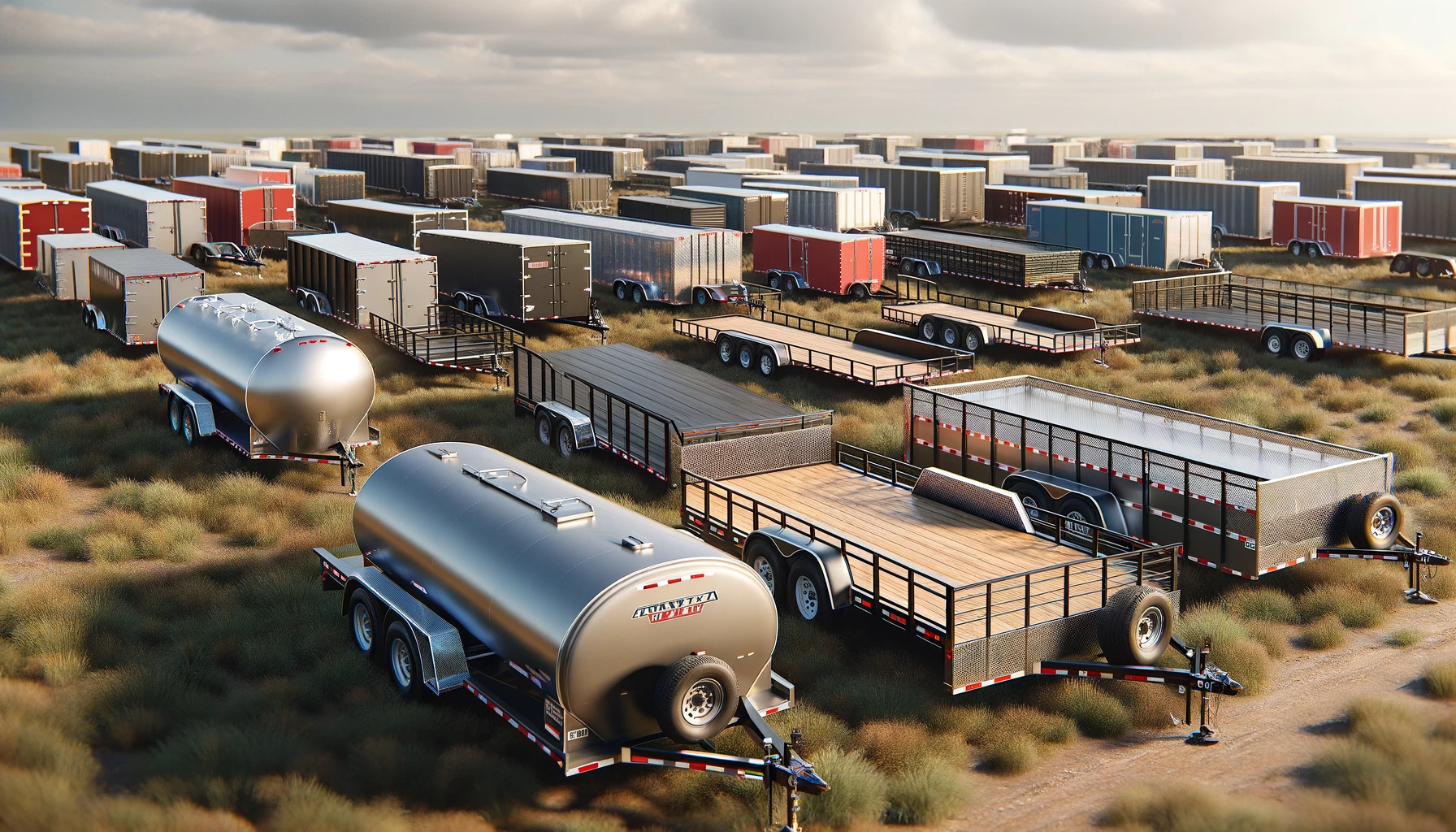- Key Takeaways:
- Types of Utility Trailers and Their Functionalities
- How Utility Trailers Contribute to Efficient Cargo Management
- The Advantages of Using Utility Trailers for Small Businesses
- Safety Considerations When Operating Utility Trailers
- Technological Advancements in Utility Trailer Production
- Buying vs. Renting Utility Trailers: What to Consider
- Choosing the Right Utility Trailer for Your Needs
Utility trailers, often viewed simply as an appendage to the vehicles that tow them, play a vital and dynamic role in our modern transport ecosystem. These versatile workhorses are critical in various industries, smoothly carrying the load where larger vehicles cannot tread. When analyzing the logistics of moving garden equipment or facilitating a move to a new residence, it’s clear that trailers are more than just an accessory; they are necessary for improving transportation efficiency and agility.
Key Takeaways:
- Utility trailers are pivotal in the seamless operation of logistics and transportation across multiple industries.
- Different types of utility trailers cater to various needs, optimizing tasks from small business operations to large-scale disaster relief.
- The evolution of the utility trailer industry is embracing technological advancements for more excellent safety and efficiency.
Types of Utility Trailers and Their Functionalities
Utility trailers come in multiple configurations, each designed with specific functionalities to cater to many tasks. Flatbed trailers, for instance, are ideal for transporting building materials or heavy equipment that may not need the enclosure of a boxed space. Enclosed trailers provide secure transportation for goods that require protection from weather or potential theft. Landscaping trailers are designed with racks and bins to organize tools and equipment efficiently. These varying designs underscore the breadth of applications utility trailers can manage, highlighting their indispensable role in many industries.
How Utility Trailers Contribute to Efficient Cargo Management
Trailers are engineered to augment cargo management and are eloquent in design and practical in utility. They ease the physical burden of moving substantial weights and streamline the organization of transportable goods, whether for small personal ventures or more significant commercial undertakings. With options for gates, covers, and tie-downs, utility trailers are customizable to their cargo, ensuring materials arrive intact and facilitating a more structured and reliable transit process.
For those interested in optimizing transportation efficiency, understanding locations like Fern Rock Station for commuters can highlight how transit hubs manage the flow of goods and people, benefiting larger logistical frameworks.
The Advantages of Using Utility Trailers for Small Businesses
Small enterprises find a robust ally in the utility trailer. These mobile storages extend businesses’ reach by removing logistical constraints and reducing delivery time frames. With a one-time investment in trailer sales, small business owners can bypass recurring costs associated with vehicle rentals or expensive delivery services. This affordable solution simplifies processes and allows you to change as your business and your customers’ needs do.
Safety Considerations When Operating Utility Trailers
From tight urban turns to long stretches of highway, utility trailers’ safe operation is paramount. Towing stability, proper load distribution, and transparent signaling systems are crucial for preventing accidents and ensuring a safe journey. Prominent in the conversation around towing safety, the focus is on design innovation.
Technological Advancements in Utility Trailer Production
Like the logistics industry, the utility trailer segment is witnessing a digital transformation. High-tech features previously reserved for luxury automobiles are finding their way into trailer systems. Innovations such as RFID tagging for inventory management and telematics for real-time tracking are revolutionizing how we interact with these mobile units, ensuring efficiency and safety by leveraging data and connectivity. Similarly, XPO Logistics has embraced technology to streamline its freight management services, offering real-time tracking for LTL shipments through its online portal, phone, and email systems. This integration of tracking tools in logistics is helping companies monitor their shipments more effectively, just as telematics systems enhance utility trailer functionality, positioning both industries at the forefront of modern transport solutions.
Buying vs. Renting Utility Trailers: What to Consider
The debate between purchasing outright or opting for rental solutions for utility trailers is nuanced. Frequent use justifies the initial outlay of buying as the lower cost per use quickly compensates for the upfront investment. On the other hand, they are renting offers a trial opportunity for those uncertain about their long-term needs or who face storage challenges. Evaluating financial and practical considerations is essential when deciding which option is most viable.
Choosing the Right Utility Trailer for Your Needs
Selecting a utility trailer should match the user’s precise requirements. Factors such as the cargo’s nature, haulage frequency, compatibility with the towing vehicle, and the intended use environment should drive the decision process. Careful vetting of these parameters will facilitate a purchase that ensures the trailer serves its purpose effectively and without compromise.




